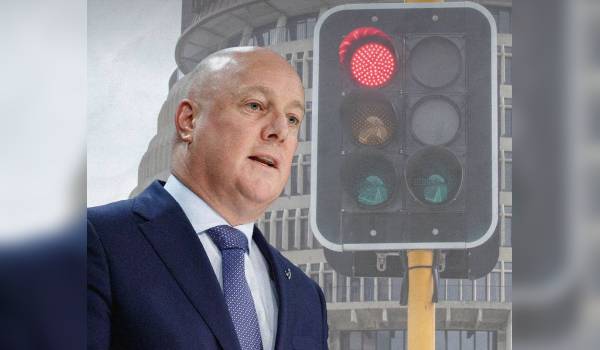By M. Peterson
This week the government has introduced a traffic light system of welfare sanctions designed to punish beneficiaries for failing to comply with their obligations. For those who find themselves in the red light, this will include a highly intrusive money management card that can only be used to buy certain essentials. Given that the government is so keen to make people on benefits take responsibility and be held accountable for their actions, it must be time for the government to be held to the same standards.
The government must be held to account for failing to provide the infrastructure which allows work to be accessible to all people. Six years ago, the Welfare Expert Advisory Group found that our employment system is not well placed to help people into work, and that we invest too little into planning for this in the future. Particularly impacted are disabled people and carers who face unfair barriers and also do a lot of unpaid labour.
This new policy will lead to reduced income for individuals and families who are already struggling financially. This will exacerbate poverty, making it harder to cover essential needs such as food, housing, and healthcare. Where is the government’s sense of accountability for failing to provide access to decent housing, food, public transport and quality healthcare for our people?
Ongoing stress and anxiety caused by the threat or imposition of sanctions can significantly affect mental health. The pressure to meet stringent requirements can contribute to illnesses like depression and anxiety. While there is a freeze on employing more frontline workers in mental healthcare, the government is clearly failing to meet its obligations both legally and ethically.
For those with dependents, sanctions can disrupt family stability. Reduced income can lead to difficulties in providing for children, which can have broader implications for family dynamics and children’s well-being. This means that the government is creating barriers for some children to a full education and to growing up in a secure, healthy environment. This clearly has ongoing implications for their future work prospects.
Punitive welfare sanctions can cause people to feel alienated, and can erode trust in social support systems. People who feel unfairly targeted or penalised often develop a negative perception of government services, reducing their willingness to engage with support systems that could assist them in improving their situation. This is why there is no clear evidence that benefit sanctions improve outcomes for beneficiaries. Sanctions may not effectively encourage long-term compliance or employment. Instead, they may merely penalise those who are already facing barriers to employment.
The process of imposing and managing sanctions can be administratively burdensome and costly. Resources used for enforcement and monitoring would be more effectively allocated to supportive services that address underlying issues. If the government took its responsibilities seriously, it would not be punishing those in precarious situations, and would be looking to improve access to opportunities for all.
The onus is on the government to be working towards a fully inclusive, supportive welfare system. It is shocking that the supported living payment is part of the traffic light system. Because of this, many family carers who were hit by the recent Whaikaha funding cuts are left feeling insecure and uncertain about how the new system will affect them. As usual, the hardest hit will be those already struggling. We all deserve to live in dignity, and the government must not be allowed to project the blame for its failings onto others.
M. Peterson is an activist from Auckland. She is the Treasurer of System Change Aotearoa.
System Change is hosting Sue Bradford next week to discuss the question: Does Aotearoa Need a New Radical Left-Wing Party? The event is at 6pm on Tuesday 20th August at the Auckland Irish Club (Rocky Nook Avenue, Morningside.) RSVP here if you are interested in attending.




